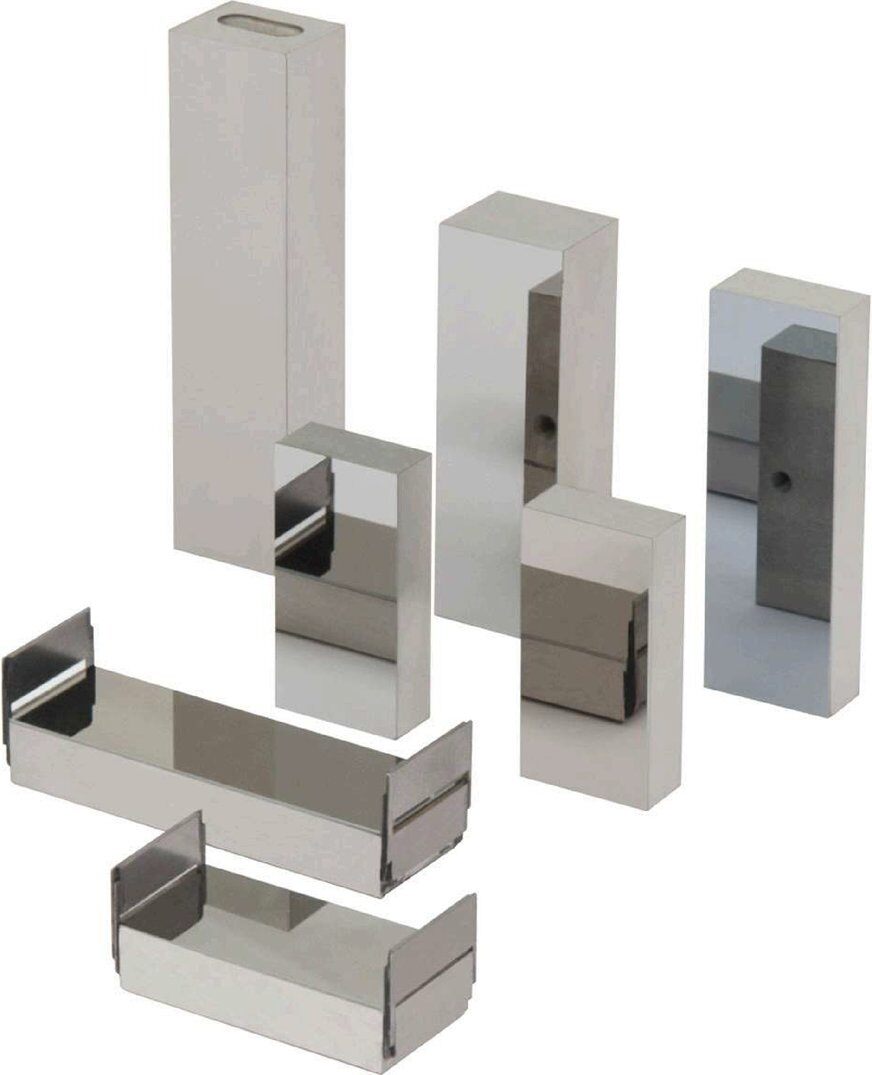Max-Flux Optics
Collimating or Focusing Graded Multilayer Monochromator
Maximizes intensity:
- through a channel-cut monochromator
- collimated or focused beam depending on application requirements
- on the sample within the total external reflection angle for TXRF
The Max-Flux brand of focusing and collimating optics are specifically designed to collect large solid angles from any X-ray source rendering the X-ray beam monochromatic. Rigaku offers a broad range of optics for your diffractometer, regardless of manufacturer or model.
Graded multilayer monochromators provide increased intensity for high-resolution diffraction, thin film analysis and other 1-dimensional parallel beam XRD applications.
Introduced by Rigaku Innovative Technologies in the early 1990s, graded multilayer monochromators provide increased intensity and decreased background.

.jpg?width=800&height=610&name=Max-Flux%20TXRF%20optics%20-%20Focusing%20graded%20multilayer%20monochromator%20(white%20background%2c%20with%20quarter%20for%20scale).jpg)
Max-Flux Optics Overview
Max-Flux optics use graded multilayers, assuring the same X-ray energy diffracts from every point along the surface of the parabolic or elliptical optic. Rigaku’s Osmic coating technology provides results in less than 0.5% d-spacing variation. Such high precision means more flux is available for your experiment.
Max-Flux hardware and housing options
Easy alignment, higher brilliance and improved data quality make the Max-Flux brand of optics the first choice for high-resolution X-ray diffraction, thin film analysis, reflectometry, powder diffraction, texture analysis, stress/strain measurements, total reflection X-ray fluorescence (TXRF) spectroscopy and more.
Max-Flux housing features include:
- Four degrees of freedom: Bragg angle elevation adjustment, tilt adjustment and focal length adjustment
- Direct and reflected beam are easily separated by adjustable slits
Monochromatize while simultaneously achieving one of the following:
- Focus a beam from a line source to a thin line—a significant increase in monochromatic flux density at the focus
- Collimate a beam from a line source to illuminate a specific area
- Focus a parallel beam—a significant increase in monochromatic flux density at the focus
.jpg?width=600&height=209&name=RIT%20-%20Max-Flux%20(graphic08).jpg)
A parallel beam creates symmetrical peak shapes, accurate 2Ө values and removes specimen displacement errors for when used in a diffractometer.
.jpg?width=600&height=212&name=RIT%20-%20Max-Flux%20(graphic09).jpg)
When cross-coupled, two parabolic cylinders will create a parallel beam in two dimensions from a point-focus source or a 2-dimensionally focused spot from a parallel beam
Optical precision is also critical to good performance. Using proprietary technology, standard Max-Flux optics are made within ~10 arcsec of the ideal curve. When the best performance is required, Rigaku applies new Arc)Sec technology to achieve optical precision of ≤ 4 arcsec! As a 1-dimensional optic, divergence in the axial plane can be controlled through use of a Soller collimator.
Contact Rigaku for a suitable optic for your application. Rigaku provides excellent housings for aligning Max-Flux optics on your instrument. Housing are available for operation in atmosphere or vacuum, for 40 mm, 60 mm, 80 mm, 100 mm, 120 mm, and 150 mm long optics.
Max-Flux Optics Features
Max-Flux Optics Specifications
| Technique | For X-ray diffraction, high-resolution diffraction, thin film analysis and TXRF spectrometry | |
|---|---|---|
| Benefit | Increased intensity on the sample, symmetric and homogeneous beams | |
| Technology | High-precision graded multilayer optics | |
| Attributes | Excellent Kα/Kβ ratio | |
| Options | Various wavelengths and optic sizes available | |
Max-Flux Optics Resources
Max-Flux Optics

Contact Us
Whether you're interested in getting a quote, want a demo, need technical support, or simply have a question, we're here to help.
